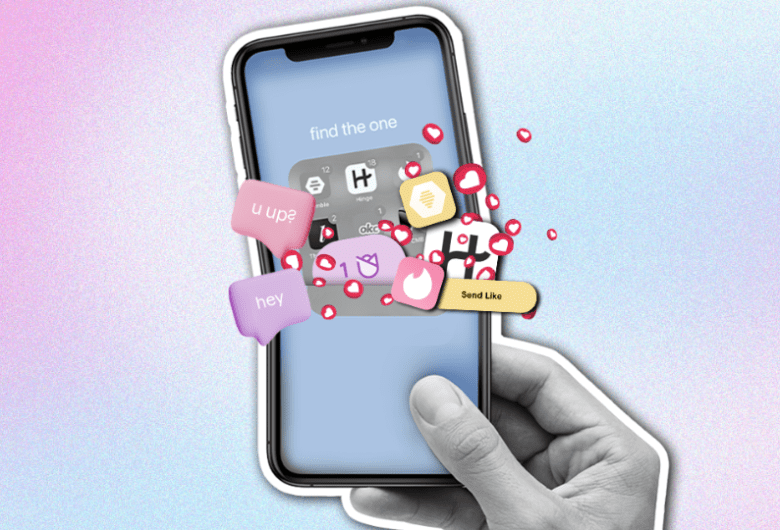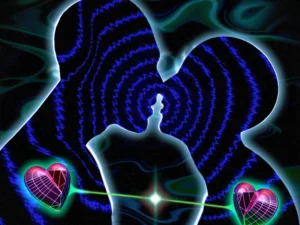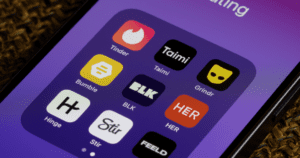Is Your Favorite Dating App Bad for Your Mental Health? Why Dating Apps Might Be Bad for Your Mental Health
Dating apps have changed how people connect, flirt, and even find love. With millions of users across the U.S. engaging daily in online dating, it’s easier than ever to meet someone with a quick swipe. But behind the promise of instant connection lies a growing concern: the significant impact on users’ mental health.
Backed by data, research, and insights from licensed therapists, this article explores seven critical ways dating apps can affect your mood, self-esteem, and emotional well-being—and what you can do to regain control.
1. The Addictive Design of Dating Apps is No Accident
Most dating app interfaces are modeled after game design, using variable rewards, like the dopamine hit of a new match, to keep your mindlessly swiping. These “slot-machine” dynamics increase dating app usage and foster compulsive behavior.
How does this affect you?
- You start to crave that next notification.
- You feel let down when there’s no new match or conversation.
- You experience real withdrawal when you stop checking the app.
The Dopamine Loop
Experts say this is driven by the brain’s dopamine response. Each swipe has the potential for a small emotional reward, reinforcing a behavior loop. This system doesn’t just help you engage—it gets you hooked.
| Feature | Effect on User |
| Swipe mechanism | Triggers compulsive use |
| Push alerts | Constant re-engagement |
| Random rewards | Dopamine spike |
This design makes dating apps bad for those already struggling with anxiety, making them feel like an addict stuck in an endless cycle.
2. Dating Apps Are Eroding Your Self-Esteem
When your worth becomes tied to likes, matches, or conversation responses, your self-esteem can deteriorate. Users often compare themselves to highly curated profiles, leading to negative self-talk.
Warning signs your self-esteem is taking a hit:
- You feel lower after using the app.
- You’re constantly editing your profile for validation.
- A lack of engagement makes you question your attractiveness.
(H3) The Comparison Trap
This cycle makes users feel less attractive, less interesting, and more anxious about how others perceive them, despite it not reflecting real-world reality.
A 2016 study found that online dating platforms, especially those like Tinder, contribute to depression and body dissatisfaction, particularly among younger users.
3. Rejection Fatigue: The Psychological Toll of Ghosting and Burnout
Modern dating involves an overwhelming number of choices, often creating what experts call “decision fatigue”. Every unmatched profile or ignored message can feel like a form of rejection.
The Ghosting Phenomenon
Ghosting—when someone suddenly stops responding without explanation—is increasingly common. Over time, this pattern damages users’ emotional resilience and ability to trust.
| Symptom | Common Cause |
| Feeling lonely | One-sided conversations |
| Stress buildup | Repeated rejection |
| Burnout | Mindless swiping |
Users often describe feeling overwhelm and emptiness after long swiping sessions—especially when these interactions never evolve into real relationships.
4. From Social Tool to Emotional Replacement: When Apps Replace Real-Life Interaction
While dating apps are designed to help people meet, they are increasingly serving as a replacement for organic social interaction. Many users are turning to digital platforms instead of connecting with others face-to-face.
How does this affect your mental health?
- You may become less confident in real-world social settings.
- Your relationships feel transactional or hollow.
- Your sense of purpose in dating becomes blurred.
Social Media Crossover
The effect of dating apps mirrors broader social media concerns: superficial connections, performative behavior, and an illusion of abundance. As users seek connection, they often feel lonely, despite having hundreds of matches.
5. Increased Risk of Anxiety, Depression, and Other Mental Health Disorders
Numerous studies highlight a correlation between dating apps and rising levels of anxiety, depression, and emotional exhaustion.
According to a 2020 Pew report, over 45% of users in the U.S. admitted that online dating made them feel more frustrated than hopeful. This aligns with findings from a 2020 Australian study showing that dating app users had higher levels of psychological distress compared to non-users.
Symptoms to Watch For
- Difficulty concentrating
- Increased sadness after using the app
- Feeling emotionally numb or angry
Left unchecked, these issues can develop into more serious disorders requiring therapy or even a formal diagnosis.
6. What Therapists Recommend: Healthy Use of Dating Apps
Not all dating app usage is harmful. But if it’s starting to make you feel emotionally unstable, it’s time to reflect and shift your habits.
Set Intentional Boundaries
- Only use apps during set time frames (e.g., 30 mins/day).
- Turn off push notifications to reduce compulsive checking.
- Take digital detox days to reconnect offline.
Engage More Meaningfully
Rather than swiping endlessly, take time to focus on conversation, shared interests, and mutual goals. Avoid opening with generic lines; aim to engage authentically.
Consider Therapy
A licensed therapist can help you unpack why dating apps affect you the way they do. Therapy can guide you in regaining confidence, understanding emotional triggers, and reestablishing your self-esteem.
7. The Surprise Truth: Not Everyone Feels the Same Way
The most surprising aspect of the dating app impact is that experiences vary widely.
Some users find dating apps empowering. They enjoy the boost of being seen as attractive or love the feeling of control. For these individuals, dating apps are a fun feature of everyday life, rather than a medical concern.
But even positive feelings can mask long-term negative patterns if left unchecked.
Reflect on Your Experience
Ask yourself:
- Does this app make you feel excited or drained?
- Do I log in out of choice or compulsion?
- Have I formed meaningful relationships, or just short-term distractions?
Your honest answers can help you decide whether dating apps are a helpful tool or an unhealthy addition to your routine.
Conclusion: Rethink How You Use Dating Apps Before They Control You
Dating apps can be fun, useful, and even life-changing—but only when they’re used intentionally. The effect on your mental health depends not only on the app’s technology but also on your purpose, mindset, and boundaries.
If you’ve started to feel like an addict, constantly swiping, checking, and hoping for validation, it’s time to reconsider your approach. Whether you use apps to find love, meet new people, or just explore, remember this: Your mental health is worth more than a digital match.



